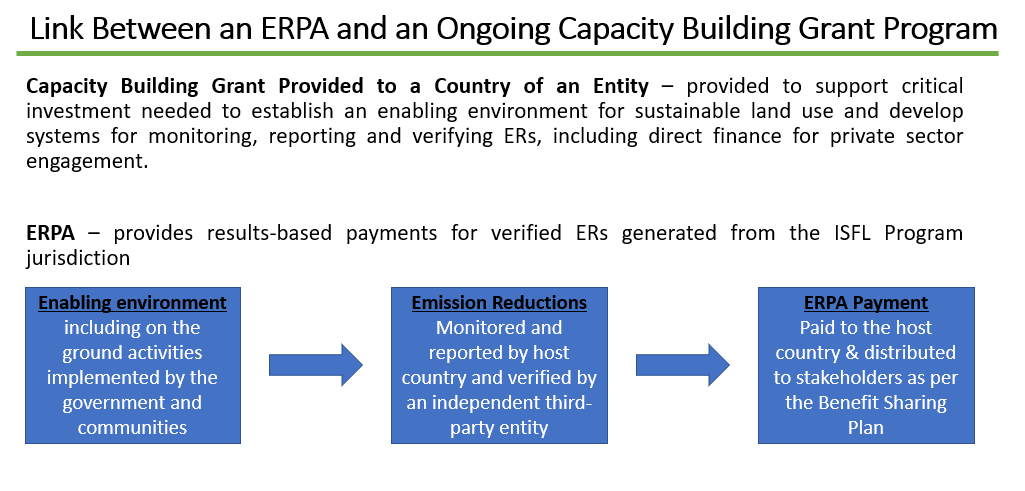The BioCarbon Fund Initiative for Sustainable Forest Landscapes (ISFL) is a multilateral fund, supported by donor governments and managed by the World Bank, that works to reduce greenhouse gas (GHG) emissions from the land sector. The fund enables program countries to implement integrated land-use planning at scale through a two-pronged approach. First, the ISFL provides up-front grant financing and technical support to program countries, which enable them to improve jurisdictional land-use management. Then, the fund provides monetary payments in exchange for results, which take the form of verified emission reductions (ERs). This model incentivizes a broad range of actors within the public sector, private sector, and local communities to adopt sustainable practices on the ground. ISFL pilot programs are currently being implemented in five countries: Colombia, Ethiopia, Indonesia, Mexico, and Zambia.
Up until now, the ISFL has been primarily focused on mobilizing grant financing to create an enabling environment for sustainable land use. Going forward, the five ISFL program countries are preparing to secure results-based payments through Emission Reductions Purchase Agreements (ERPAs), which at the simplest level are contracts which make payments to countries for reducing emissions. By effectively implementing landscape-level sustainable land-use programs, ISFL program countries can expect to generate a substantial volume of ERs that are eligible for remuneration once they have been recorded and verified.


